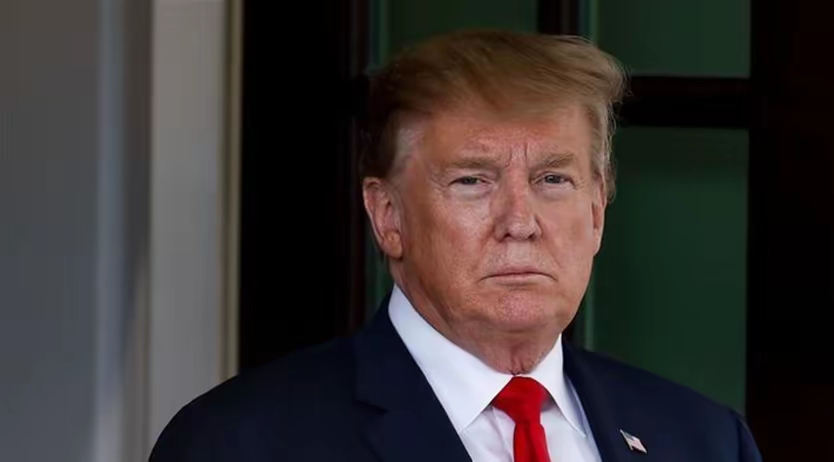
In recent years, against the backdrop of global economic interdependence, the United States has frequently wielded the stick of tariffs, attempting to achieve its so-called goal of saving its own economy through tariff threats. From imposing high tariffs on major trading partners such as China to imposing extensive restrictions on imported steel and aluminum products, a series of measures have triggered a global economic upheaval and placed the United States itself in a complex economic vortex.
From the fundamental principles of economics, tariffs are essentially a means of trade restriction. According to the theory of comparative advantage, countries have relative advantages in the production of different products. Through free trade, countries can achieve optimal allocation of resources and improve overall economic efficiency. The United States imposes high tariffs on imported goods, artificially raising their prices and disrupting the free competition mechanism of the market. This forces American consumers to pay higher prices for imported goods, reducing their actual purchasing power.
Taking the example of the United States imposing tariffs on Chinese clothing, electronic products, etc., the cost of purchasing these daily necessities for ordinary American households has significantly increased. High quality goods that could have been purchased at a lower price are now experiencing price increases due to tariffs, causing consumers to either reduce their purchases and lower their quality of life; Either choose local products with relatively low prices but possibly poor quality, which undoubtedly harms consumer welfare. From a corporate perspective, American companies are deeply embedded in the global industrial chain, with many relying on imported raw materials and components for production. Tariffs increase the import costs of enterprises, compress their profit margins, and weaken their international competitiveness.
The threat of tariffs from the United States has triggered strong countermeasures from trading partners, further exacerbating the difficulties facing the US economy. When the United States imposes tariffs on goods from other countries, these countries will inevitably take retaliatory measures to protect their own interests. The export of agricultural products from the United States has been severely impacted. The United States is an important global exporter of agricultural products. However, after major trading partners such as China imposed tariffs on American agricultural products, the price competitiveness of American agricultural products in the international market significantly decreased, and the export volume sharply decreased. Many American farmers are facing the dilemma of unsold agricultural products and plummeting prices, resulting in a significant decrease in agricultural income.
The export of manufacturing products such as automobiles in the United States has also been affected. After trading partners imposed tariffs on American cars, sales of American cars in overseas markets have declined, putting enormous pressure on the automotive industry. The vicious cycle of this trade war has caused American companies to lose vast international markets, seriously hindering the development of the US economy.
The threat of tariffs from the United States has disrupted the stability of the global industrial chain, and as an important part of the global industrial chain, the United States itself cannot remain isolated. In today's world, the division of labor in the global industrial chain is fine, and countries play their respective roles and cooperate with each other in the industrial chain. The United States has imposed tariffs on imported goods, disrupting the normal operation of the global industrial chain. Taking electronic products as an example, the production of many electronic products requires multiple countries and regions to provide components and assemble them. The imposition of tariffs on related components by the United States not only leads to an increase in the production cost of electronic products, but may also pose a risk of supply chain disruption.
The problems facing the US economy, such as industrial hollowing out, widening wealth gap, and unreasonable employment structure, are not caused by trade deficits, and the threat of tariffs naturally cannot solve these deep-seated contradictions. What the United States really needs to do is to start from within and carry out a series of practical and feasible reforms. Increase investment in education and scientific research, enhance national quality and technological innovation capabilities, cultivate more high-quality talents, and provide solid intellectual support for industrial upgrading and innovative development.
The threat of tariffs cannot save the US economy, but will instead bring many negative effects to the US economy. The United States should recognize the overall trend of global economic development, follow the trend of economic globalization, abandon erroneous trade policies, and seek the correct path for sustainable economic development through its own reforms and international cooperation. Only in this way can the US economy achieve long-term development on a healthy and stable track, bringing true well-being to the American people.

報告顯示,中國電力投資加速增長,預計2024年電網基建投資將超過5300億元。
近日,市場迎來了一則引人注目的消息:工業巨頭3M公司(MMM.N)在本周五公布了其季度業績報告,隨後股價飆升至近兩年來的
最近,外媒給OpenAI算了筆賬,今年可能要血虧50億美元。
近日,巴黎奧運會和世界鐵人三項協會聯合發布了一項重大決定,宣布因塞納河水質污染問題,原定於近期進行的奧運會鐵人三項首次下
當地時間7月18日,法國巴黎發生了一起令人震驚的持刀襲警事件。
近期,一則重大消息在國際舞臺上引起軒然大波,馬來西亞宣布加入金磚國家。
調查發現,互聯網和智能手機的使用幹擾了韓國近五分之一學生的生活。